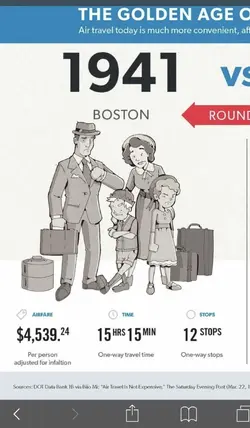And how long have I been working under a bankruptcy contract negotiated by the great TWU?
Throw them stones!
A Law That Changed The Airline Industry Beyond Recognition (1978)
by
Madhu Unnikrishnan
Jun 04, 2015
On Oct. 24, 1978, when President Jimmy Carter signed the Airline Deregulation Act, the airline industry changed forever, and it can be argued we’re feeling the repercussions still to this day. The Deregulation Act eventually dissolved the Civil Aeronautics Board (CAB), which regulated U.S. airlines like a public utility, setting where they could fly and what fares they could charge. Without the CAB’s guaranteed rate of return, many storied airlines – Pan Am, Eastern Air Lines, Braniff International – found they couldn’t compete in the new world of open markets and eventually were consigned to the dustbin of aviation history.
Before Deregulation, airlines competed on service alone, as fares were regulated by the government. Many remember this era fondly as the “golden age of aviation,” when stewardesses—as flight attendants were then known—carved chateaubriand on rolling silver carts and airlines put piano lounges in the upper decks of their Boeing 747s. Passengers dressed up to board flights, and flying was glamorous and exciting—and mainly for the rich.
Deregulation resulted in the rise of a new kind of airline—the low-cost carrier (LCC). At the time of Deregulation, Southwest Airlines was a small regional airline, prevented by CAB rules from flying outside of Texas. Today, Southwest is the largest domestic U.S. carrier in terms of passenger traffic, something no one could have foreseen in 1978.
Southwest is a success story, but Deregulation allowed airlines to innovate new business models. People Express may have come and gone (and may someday be revived) but it, and others like it shook up the white-glove world of the U.S. airline industry and democratized travel. We may peer through our rose-colored glasses and yearn for the days of chateaubriand and piano lounges, but ultimately companies like Southwest, and newer ones like Spirit, allowed more people to fly more often.
Deregulation left the international carriers, like Pan Am and Braniff, and to a lesser extent Trans World Airlines, without robust domestic feeder networks, and it allowed domestic carriers, like Delta Air Lines, to apply for international routes. Pan Am and Braniff scrambled to create domestic networks but ultimately were unsuccessful, although it took until 2000 for TWA to be absorbed into American Airlines.
And some argue that the massive consolidation of the U.S. airline industry in the last decade, which has resulted in three large carriers —four, when Southwest is included—is Deregulation’s final act. The network carriers that survive—Delta, United and American—learned to be tough competitors, and combined existing domestic networks with the international networks acquired in large part from carriers like Pan Am that didn’t make it.


